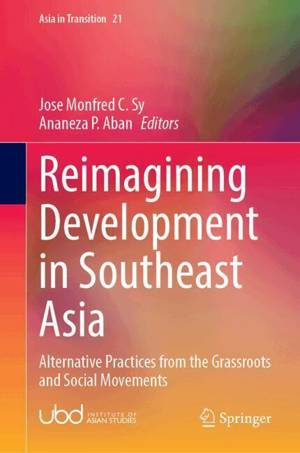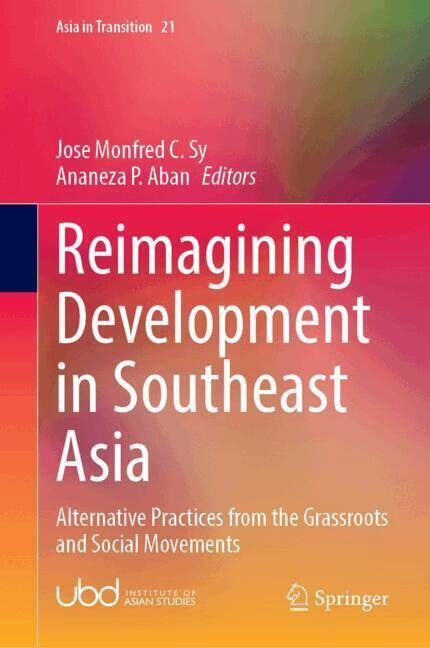
- Retrait gratuit dans votre magasin Club
- 7.000.000 titres dans notre catalogue
- Payer en toute sécurité
- Toujours un magasin près de chez vous
- Retrait gratuit dans votre magasin Club
- 7.000.000 titres dans notre catalogue
- Payer en toute sécurité
- Toujours un magasin près de chez vous
Reimagining Development in Southeast Asia
Alternative Practices from the Grassroots and Social Movements
Description
This volume consolidates chapters from across Southeast Asia as a means of discussing alternative development pathways. It presents radical re-imaginings of how development might look, considered alongside the growing disillusionment over mainstream development models. In suggesting alternative models of development, it reframes participatory processes from the developing world, discussing practices of decolonization, anti-capitalism, plurality, anti-racism, effacing patriarchy, and ecological sustainability, designed and executed by grassroot communities and civil society organisations (CSOs). The grassroots and social movement paradigms highlighted in this collection seek to challenge and change the dominant model of development instituted in ASEAN, which have largely failed in meaningfully addressing the issues faced by different sectors. That the book project springs from an engagement between scholars and on-the-ground practitioners means that several chapters combine reflective, case-based viewpoints. To this end, the book is relevant to scholars, students, and practitioners working in areas related to Southeast Asian politics, economy, and culture.
Spécifications
Parties prenantes
- Editeur:
Contenu
- Nombre de pages :
- 334
- Langue:
- Anglais
- Collection :
- Tome:
- n° 21
Caractéristiques
- EAN:
- 9789819791392
- Format:
- Livre relié
- Dimensions :
- 155 mm x 235 mm






